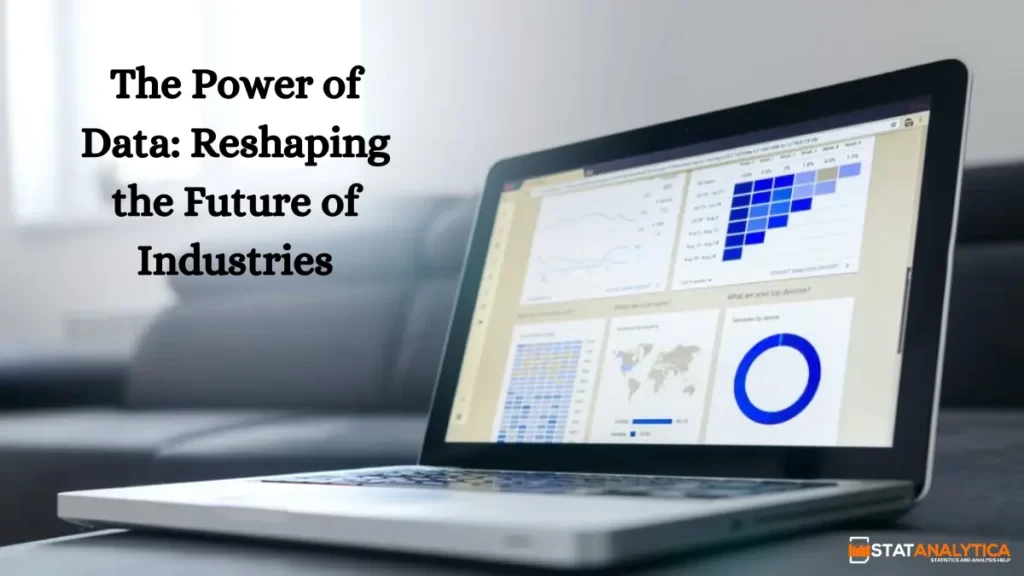According to Investopedia, data-driven insights empower businesses to optimize performance, enhance operational efficiency, maximize profitability, and make wiser choices. It truly is going to revolutionize the way businesses shape their future- in fact, 40% of all organizations are now investing in big data and AI.
Also, a survey by BARC showed that companies that invested in big data were reporting an average of an 8% increase in their profits! We’ve researched how data is helping businesses adapt to an ever-changing industry and compiled our findings in this article below!
The Power of Data
Table of Contents
Market Trends
We’re in a new generation of forecasters. Businesses are presented with a unique opportunity to uncover valuable insights- whether it’s market trends or a closer look at consumer behavior. That opens up a key question, how can data alone do this? Data that is collected comprehensively may display patterns- such as preferences- and emerging opportunities. And to add on – retail giants like Amazon rely on consumer data to optimize their product offerings.
What’s really important to note is that these data-driven insights are key to helping these conglomerates predict future market demands and adjust their strategies accordingly.
But there is also another side to data’s ability to anticipate marketing trends. Probably the most important feature of analyzing data is that it opens up a new layer of competitor analysis. Pricing strategies and market positioning, as well as product launches, are all features that businesses look at when collecting data.
Data-driven analysis of the market can help you anticipate your competitors’ next moves- keeping you ahead of the game. Unlock your firm’s competitive advantage by using data to evolve your strategies.
New Ways to Optimize Operations
Another interesting implication of comprehensive data collection is the optimization of operations – and it’s actually pretty simple- by leveraging data-driven insights, you have the ability to identify inefficiencies, maximize productivity, and even streamline your processes.
You will, however, have to set the right metrics when collecting data. Setting the right key performance indicators allows firms to identify bottlenecks in their systems and work accordingly to have them sorted. According to Forbes, data can identify trends in markets while helping businesses tweak their operations.
We’re going to explain this through an example that is specific to supply chains. Imagine collecting data through each stage of the supply chain- making it easier to identify areas for improvement, reduce costs, and improve performance.
With these insights, you can make the right choices about your inventory management, logistics, and supplier selection. While this specific example is geared toward supply chains, it’s easy to grasp how the same idea can be implemented across numerous industries- in fact, most businesses have teams that they rely on to optimize operations.
How to Make the Right Decisions
Staying afloat in a competitive environment is a challenge most businesses face- you’re literally choosing between moving forward or becoming redundant. Data serves as a special guiding light- which means it can empower us to navigate these complex landscapes by allowing us to leverage market intelligence and make our decisions accordingly.
Are you wondering about expanding into new markets? Or have you explored launching new products? There are only a few ways to predict if these ventures will be successful- the most important of which is data analysis! You will have to make the right decisions based on the data you’re receiving to ensure that you aren’t taking unnecessary risks.
A Unique Role in Compliance
Another role data play in industries is the fascinating domain of compliance. So let’s start by explaining the role of a registered agent, – especially a CA registered agent, as California is one of the best states for LLCs. Did you know that in California, businesses are required to have a designated agent for service of process?
According to the California Corporation Code, all corporations must have a registered agent because they can help analyze data for regulatory requirements while meeting legal obligations – and, subsequently, compliance deadlines. Mandatorily registered agents aren’t restricted to California- almost all 50 states require them! This makes it essential for businesses to participate in data analysis to stay up-to-date with new regulations, stay compliant, and avoid legal complications in the long run.
With businesses struggling to remain competitive, there is one skill that will keep you ahead- your ability to leverage data. You put yourself in a competitive position by anticipating market trends and making informed decisions by interpreting and using your data efficiently. It is also possible to optimize your operations by identifying any weak points that could help you work towards a long-term goal.
The art of analysis, however, lies in the techniques you’ll use to interpret the data. This means that if you’re able to understand what the data is communicating to you and take action in a timely manner. Put it another way – you will be in the driver’s seat of a prosperous future!


